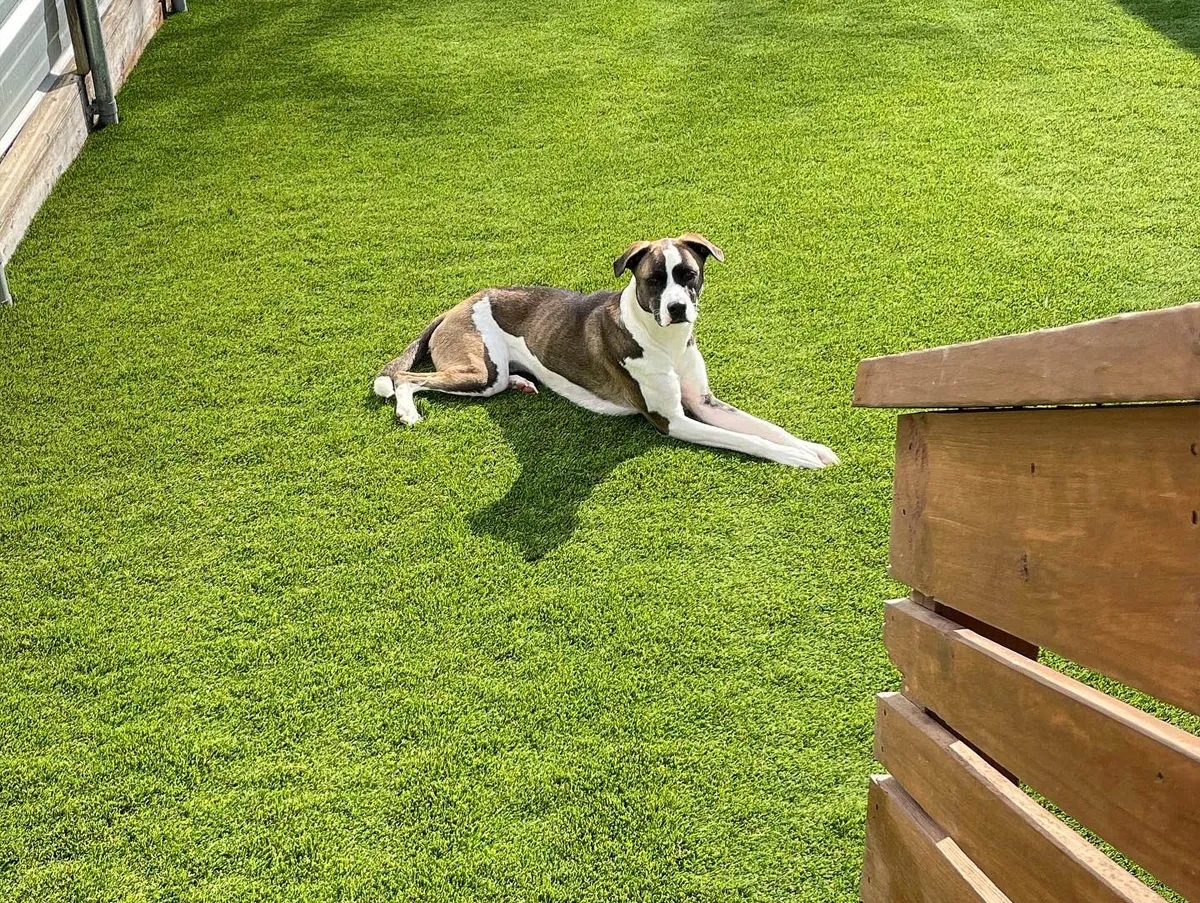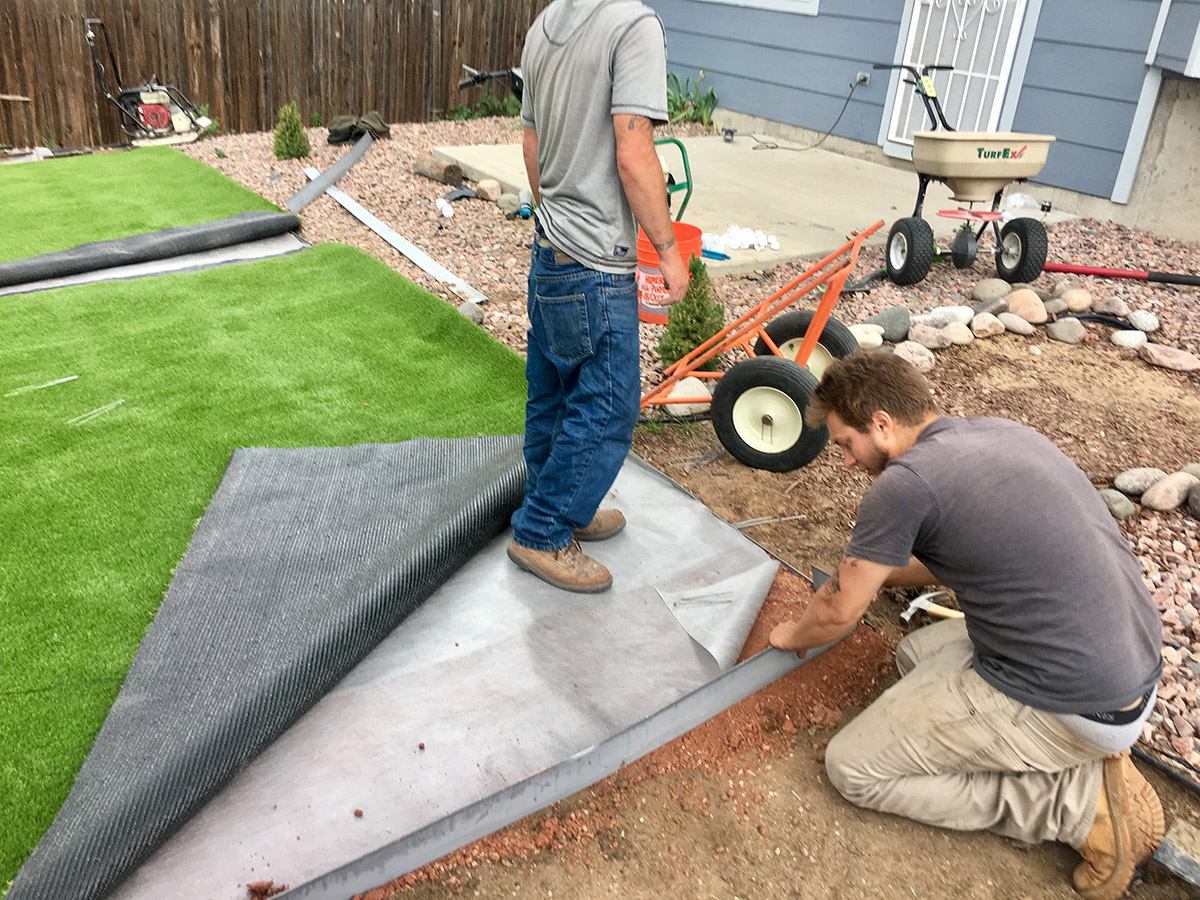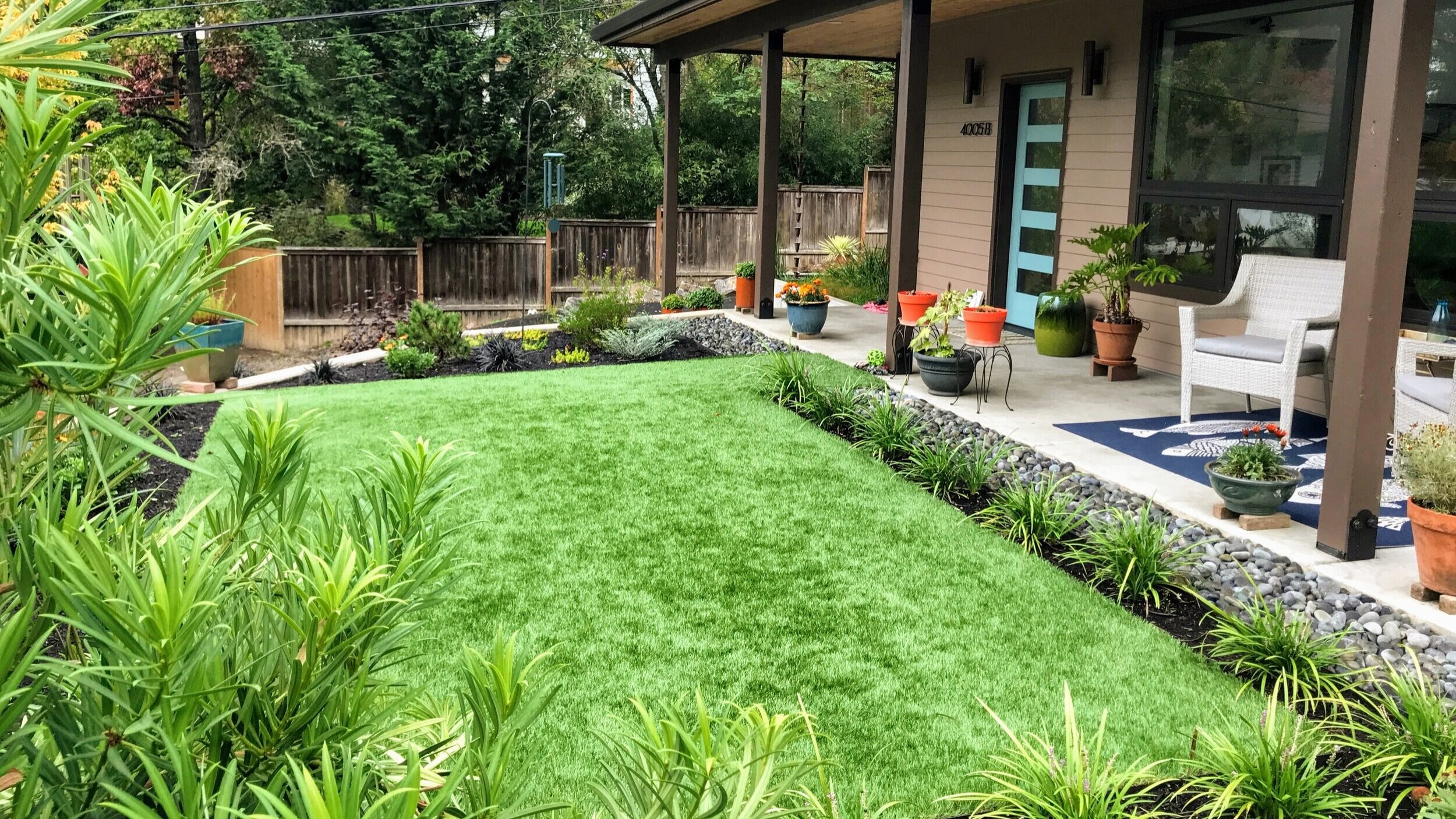Professional Arizona Turf Providers Ensuring a Lifelike Lawn Option
Professional Arizona Turf Providers Ensuring a Lifelike Lawn Option
Blog Article
Explore the Environmental Conveniences of Opting for Artificial Lawn Solutions
The adoption of artificial grass remedies offers a compelling chance to resolve pressing ecological challenges. By substantially minimizing water usage and reducing the application of unsafe chemicals, these alternatives not only promote lasting landscaping however likewise shield regional ecosystems.
Water Conservation Advantages
One of the most significant advantages of artificial grass is its capability to preserve water. In contrast, synthetic grass does not require watering, significantly decreasing the overall need for water sources.
By getting rid of the need for routine watering, man-made turf adds to sustainable landscape practices and assists alleviate the environmental effect of extreme water intake. Moreover, the conservation of water includes the reduction of drainage, which can bring about soil erosion and river pollution.
Furthermore, the installation of artificial turf enables towns and house owners to allot water sources a lot more successfully, concentrating on vital usages such as drinking water and farming. The shift in the direction of synthetic grass not only advertises accountable water use but also straightens with broader ecological goals targeted at preserving all-natural sources.
As areas increasingly prioritize sustainability, the water preservation advantages of synthetic grass offer an engaging case for its fostering in business and residential landscaping jobs.
Decreased Chemical Usage
The shift to synthetic grass significantly reduces the reliance on chemical therapies commonly used in natural lawn upkeep. Conventional grass management commonly entails the application of pesticides, herbicides, and fertilizers to promote growth and control pests. These chemicals can pose dangers to human wellness, neighborhood wild animals, and the atmosphere, adding to soil and water contamination.
In contrast, synthetic grass eliminates the demand for these harmful compounds. Once installed, it requires marginal upkeep, primarily including normal cleaning and irregular infill replenishment. This decrease in chemical usage not only benefits the prompt atmosphere yet additionally adds to broader ecological stability. By reducing the release of synthetic substances into the ecosystem, synthetic grass promotes much healthier dirt and water systems.
Additionally, the lack of chemical drainage connected with fabricated grass setups aids shield neighborhood waterways from pollution, sustaining aquatic life and maintaining biodiversity. Arizona turf. As communities progressively prioritize lasting methods, selecting artificial lawn offers a feasible remedy that straightens with ecological conservation goals. Through this change, residential property proprietors can enjoy rich green rooms without endangering eco-friendly health and wellness, leading the way for an extra lasting future
Reduced Carbon Impact

Moreover, the setup of synthetic grass can cause significant water conservation. All-natural yards require considerable quantities of water for irrigation, which not just adds to the carbon footprint related to water extraction and therapy but likewise pressures local water sources. On the other hand, synthetic grass requires minimal maintenance, calling for no watering, consequently considerably minimizing water usage and its connected energy costs.
Additionally, the durability of man-made lawn contributes to its reduced carbon effect. With a life expectancy of up to 15 years or even more, the need for frequent substitutes is diminished, causing less waste and reduced power consumption in manufacturing and taking care of typical lawn options. On the whole, fabricated lawn presents a sustainable choice for environmentally mindful landscaping.
Environment Preservation
Environment conservation is an essential consideration in the dispute over landscape design options, specifically when comparing synthetic grass to all-natural turf. Natural yard lawns often need considerable upkeep, consisting of making use of fertilizers, herbicides, and pesticides, which can negatively influence neighborhood communities. These chemicals can leach right into the soil and waterways, harming native plants and fauna and disrupting neighborhood environments.
On the other hand, synthetic turf provides an opportunity to minimize the eco-friendly impact of landscaping. By going with synthetic grass, property owners can reduce the disruption of natural environments related to traditional lawn care practices. Synthetic grass removes the need for harmful chemicals, thus shielding close-by wild animals and preserving the stability of bordering environments. The installment of fabricated grass can lead to the conversion of former grass areas right into more biodiverse landscapes, such as pollinator gardens or indigenous plant locations, which can support neighborhood wildlife.
Inevitably, the shift to synthetic grass not only conserves water go to my site and reduces maintenance initiatives however also promotes a much more unified partnership between human activities and the natural surroundings, promoting habitat preservation while doing so.
Long-Term Sustainability
Long-lasting sustainability is a critical consider reviewing the advantages of synthetic turf over traditional lawn yards. One of the most significant advantages of synthetic grass is its sturdiness; it can last up to 15-20 years with minimal maintenance, whereas all-natural turf calls for constant reseeding and substitute. This durability minimizes the requirement for continuous sources, such as water, plant foods, and pesticides, which are essential for maintaining a healthy and balanced yard yard.
Additionally, synthetic grass contributes to a reduction in carbon emissions related to yard treatment equipment. Typical grass typically require gas-powered mowers, leaners, and blowers, every one of which add to air pollution. Artificial turf companies phoenix. In comparison, synthetic grass eliminates the need for such tools, advertising a cleaner setting
Moreover, the production of synthetic grass significantly utilizes recycled products, improving its sustainability profile. As makers take on green techniques, the ecological impact of synthetic grass proceeds to reduce.

Conclusion
The fostering of synthetic grass services offers considerable ecological advantages, including significant water conservation, minimized reliance on harmful chemicals, and a lower carbon impact. In addition, synthetic grass aids in preserving all-natural habitats by lessening land disturbance and promoting lasting sustainability via the use of sturdy products. Jointly, these factors emphasize the discover here possibility of synthetic grass to add favorably to environmental health and wellness and use a viable alternative to typical landscaping techniques in an increasingly resource-conscious globe.
In comparison, synthetic lawn does not need watering, substantially reducing the total need for water resources. By reducing the release of synthetic compounds right into the environment, artificial lawn promotes healthier dirt and water systems.
In addition, the setup of synthetic turf can result in substantial water conservation. In contrast, fabricated grass requires minimal maintenance, requiring no watering, thus dramatically reducing water use and its connected energy costs.

Report this page